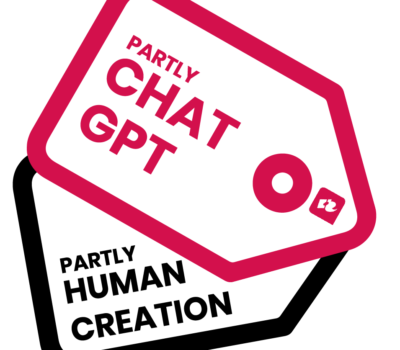

With Christmas coming and going, the dark nights and dark days, Hannah was starting to feel the strain. She way trying to keep it all together but she was tipped over the edge. Here, she shares her strategies for coping.

So, we have survived another half term. Just. For me, it has been a particularly hard one. Christmas is always a difficult time and it was my first one without my partner of nearly two years. Although it was best for us both that things came to an end. It does not make things any easier! Most people come back from Christmas semi refreshed, but this time of year sees us going off sick and struggling with our wellbeing. In particular trainee teachers struggle with their new placements in what @UoNoNSoEHistory describes as the dark days of February. They are dark, you go to work in the dark and you come home in the dark. It feels like you will never see the light of day again.
This is concerning, as we all know, the situation with teacher training and retention is only getting worse. We must do more to support our beginning colleagues, by not just being mindful of their wellbeing, but also our own. How else will we stay or convince people to stay in our vocation, which we so passionately believe in?
A recent Guardian article stated that one in 20 teachers have mental health problems that last for over a year (Guardian, 2020). I wonder how many of those people began to feel the strain around about this time of year? The struggle to get out of the bed, the student that pushes them just that bit too far. I know I had a student that pushed me a couple of weeks ago, I’m not ashamed to admit I had to take a moment in an office when it all got too much. I hadn’t been honest with myself or my colleagues about what was going on and that is one of the strategies that I will refer to later. This is all before you begin to factor in life outside of school and how that can impact your teaching.
But, why do teachers struggle with this time of year? Is it the straight back in with Parents’ Evenings, mock exams, reports and interventions that happen in force? These are management considerations and I am lucky in my school that things are spaced out, but not everyone’s are. You could of course speak to the powers that be, but that does not always get you very far. So, in the meantime, what can you do to protect your wellbeing and those around you?
Vitamin D
Last week, I tweeted about seeing the sun for the first time in the morning, in what felt like a long time. My friend and colleague came up with a theory before Christmas, she is always hit hard with the lowness of the winter and has theorised that it is a lack of Vitamin D. She has been taking Vitamin D to counter this and has felt a lot better, so I joined the band wagon myself. I’ve only been taking it for a couple of weeks, but I feel so much better. Bright, alert and more able to manage the day. Consider your trainee teacher as well, how long are they staying up and planning? Do they get out at the weekend? Be mindful of this.
I spoke about this theory with some friends outside teaching, who also feel the struggle and they have been taking Vitamin D. It’s a quick fix, not a permanent one, but an easy fix. Obviously, I am not, a trained medical professional! First aid yes, medical degree no. So, this is all just a theory!
Communication
What I feel is not stressed enough, is, It’s OK not to be OK. Teaching is an incredibly stressful job and I know I feel like I must be OK all the time. We are role models to the children we teach and therefore we must set an example. However, we are human beings and that is just not always possible. In a recent TES article, 62% of ex teachers cited mental health as the reason they left the profession. Good teachers, who have been driven out. It is not easy to tell someone how you are feeling, or to admit you need help. My office incident came on the back of a lot of things, not sleeping, personal life, family and friends. I’d kept very quiet about it all, trying to be OK. Since I’ve spoken about it, a weight has been lifted.
As a mentor as well, it is important that I demonstrate the behaviours that make long lasting teachers. We must communicate with each other. Because the chances are, your friends and colleagues are going through similar things. There is of course also the option of seeking professional help, I know a lot of people are afraid of the stigma attached to this and to teachers seeking help. But, if it is at that stage, you must prioritise yourself.
People around you are having the same issues.
I am a big advocate of Headspace, which is free for a year for teachers. I meditate every day and I have taken part in the anxiety programme. As part of this programme, I was reminded that I am not the only one feeling this way. This is so important to remember; the stats prove that you are not alone in feeling the way you feel. Reach out, be mindful, is there someone else feeling the same? Can you support them and yourself? Headspace is a great way to just have ten minutes of ‘you’ time. Having time to yourself is so important, it is one of the things that make good teachers.
Exercise
Having that time for yourself could include exercise. Releasing the positive endorphins that are associated with exercise is a great way to de-stress. I do Zumba once a week and play netball, as well as running when I can. Time is a constraint for a lot of teachers, and I understand that. But, if we are serious about being in the best health, then we must take that time. However, you cannot allow yourself to become dependent on that exercise, Parents’ Evenings will get in the way, deadlines, Ofsted. It should become part of your routine, not essential to your routine.
These are all strategies that have worked and are working for me. I do not pretend to be a guru or an expert in mental health and mindfulness. It is something that I am interested in and is crucial to teachers who wish to stay in the profession. If you are struggling and it is all too much, then there are people that you can speak to.
Samaritans 116 123
Saneline 0300 304 7000
You could also text SHOUT to 85258
We have broken the back of the darkness, but there will always be something. Remember, to be the best teacher you can be, you must look after you.